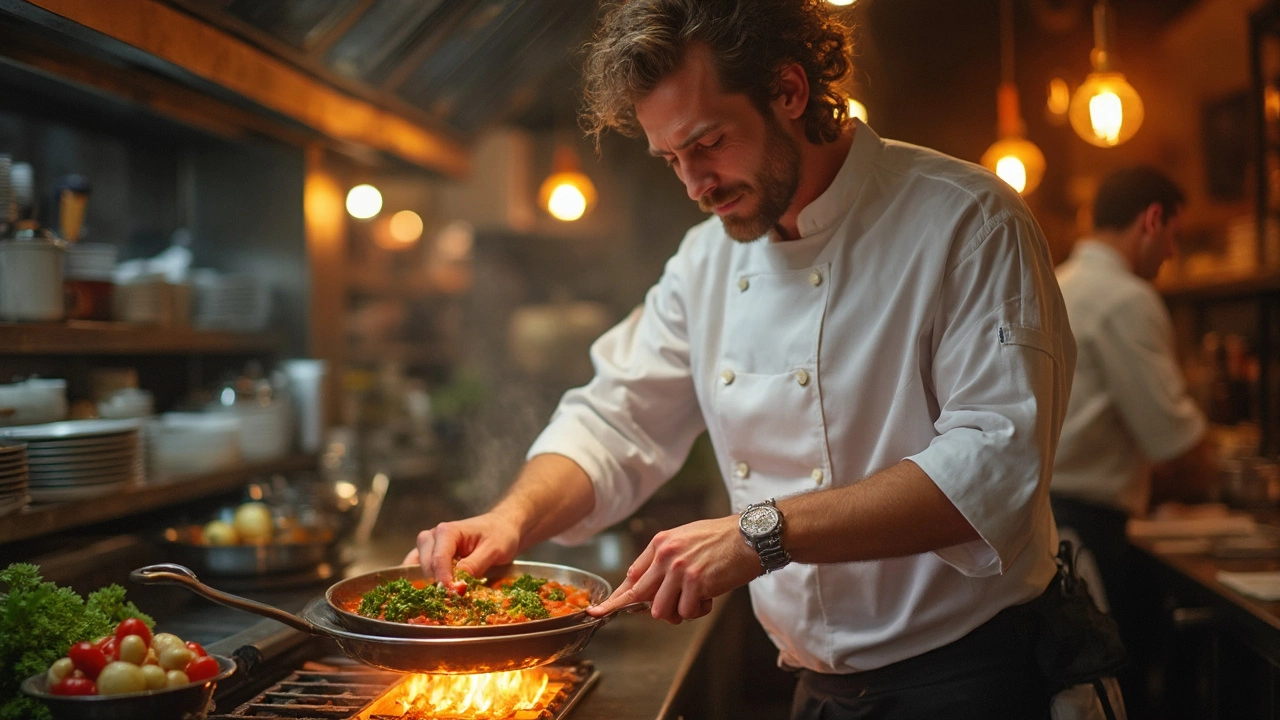Chefs: Simple Tips to Level Up Your Home Cooking
Want to feel like a pro in your own kitchen? You don’t need a fancy culinary school – just a few smart habits and the right tools. Below are practical ideas that real chefs use every day, broken down so you can start applying them right now.
Essential Kitchen Tools Every Chef Needs
First, check your drawer. A sharp chef’s knife is the most important piece of equipment. It saves time, makes chopping safer, and gives you consistent cuts. If your knife is dull, sharpen it or invest in a good quality blade – it’s a small price for huge gains.
Next, grab a sturdy cutting board. Wood or bamboo works best because it’s gentle on blades and doesn’t slip. Keep a separate board for raw meat to avoid cross‑contamination.
Invest in a few reliable pans: a heavy‑bottomed skillet for searing, a saucepan for sauces, and a Dutch oven for braising. These pieces heat evenly, so food cooks predictably and you get better flavor.
Don’t overlook measuring tools. A set of spoon and cup measures helps you follow recipes accurately, while a kitchen scale is gold for baking. Consistency in ingredients means repeatable results.
Quick Techniques to Boost Flavor
Seasoning is more than just salt. Chefs layer flavor by seasoning at different stages – a pinch when you start cooking, another after sautéing, and a final dash before serving. This builds depth without needing exotic spices.
Another fast trick is the “sweat” method: gently cook onions, garlic, or carrots in a little oil over low heat. You’ll release natural sweetness, creating a flavorful base for soups, stews, and sauces.
Finish dishes with a splash of acid – lemon juice, vinegar, or even a spoonful of yogurt. Acid brightens flavors and balances richness. A tiny amount can turn a bland sauce into something vibrant.When you’re ready to plate, let the food rest for a few minutes. Resting lets juices redistribute, so a steak stays juicy and a sauce stays silky.
Lastly, keep your pantry stocked with a few core ingredients: olive oil, butter, canned tomatoes, dried herbs, and a handful of spices. When you have basics on hand, you can improvise meals without hunting for missing items.
Putting these habits into practice will make you feel more confident and help you produce meals that taste restaurant‑level. Start with one change – like sharpening your knife – and add another each week. Before long, you’ll notice the difference in taste, speed, and enjoyment of cooking at home.
Remember, cooking is a skill that improves with repetition. Use the tools and tricks above, stay curious, and have fun experimenting. Your kitchen can be the place where you become the chef you’ve always wanted to be.
